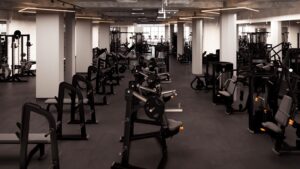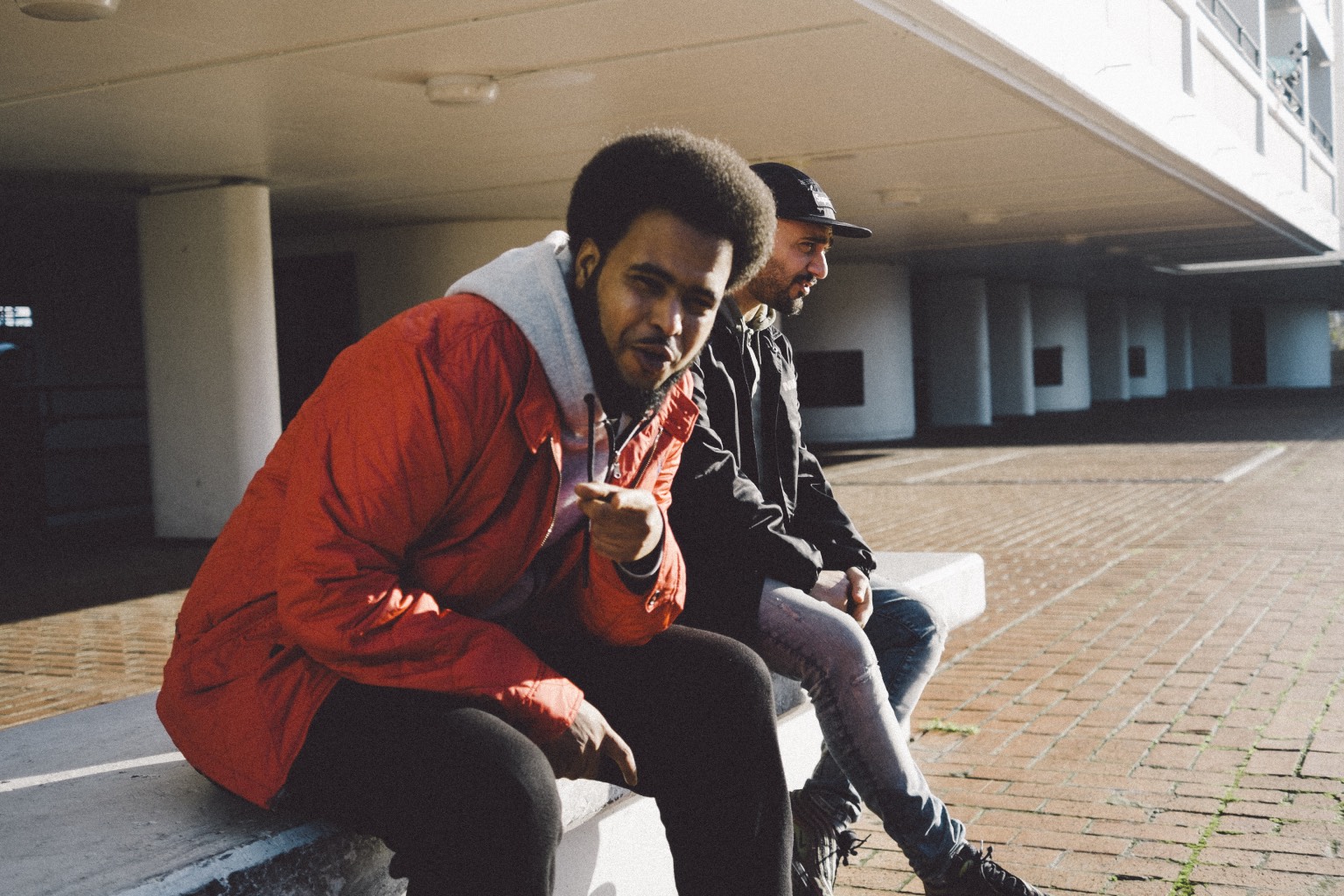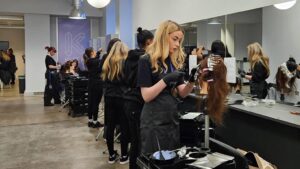
The Basement Gym + Studio opens in Camden Town
Camdenist readers get 50% off their first month’s membership, too

To be reminded of the power of music
What’s the biggest lesson life has taught Awate so far? He pauses, then starts rapping, “’96, first day of reception, I was told to move seats on account of my complexion. Teacher tryna look at me like, why you stressing? Twelve years in school, that’s my most valuable lesson. That’s from my next album. It wasn’t the racism of another four-year-old, it was the power structure defending it that victimised me. That’s exactly what’s happened every day from then on.” He compares it to The Wire, where the whole TV series is summed up in its first scene. “It’s the most incredible distillation of one message. That’s what happened to me. It was as if someone wrote it, as if they decided that my first day would symbolise exactly what has happened every single day after, every lesson since. That’s one of the experiences that’s built resistance to authority and to illegitimate power.” He laughs. “And to just not being nice to kids, what’s wrong with you?”
Growing up on Camden’s Maiden Lane estate, Awate lived the changes that have shaped the area since the early ‘90s. He describes the estate’s notoriety, especially back then. “It was right in the middle of the drug hotspots of Camden Market and the Lock, and the sex work of King’s Cross. My memories from that time are National Front fascist families trying to assault us, needles, condoms, and charred vehicles, as well as the few friends I made, and the sense of community that developed over time with neighbours.” When Labour won the 1997 election, coming into power for the first time in nearly twenty years, Awate says there was a notable shift in living conditions. “The Community Centre, the Youth Club and the playcentre opened, giving us access to accredited courses that usually cost thousands of pounds. I found music and went to places like the London School of Sound. The Roundhouse opened too, and a place called the Shed, which became my home. It was literally a shed, a microphone, and a broken drum kit in the basement of a church on Camden Street. We turned it into three state of the art rooms eleven years later.”
The Conservatives came back into power in 2010, cutting the youth budget. The building that housed the Shed was knocked down to make room for housing, replacing the community centre in the process. Perhaps consequently, the rapper firmly locates his experiences in his music; sound becomes inhabitable space. In ‘Displaced’, he spits, “I’m from a real estate. I know they want us displaced. Maiden Lane, Agar, Peckwater, Somers, Q.C., Cumbo…” The lyrics grow their own demolition-proof roots, his music inviting us to listen as he takes up space on an inhospitable map.
In his song ‘Brutalism’, Awate writes, “growing up ain’t nice around here”. I ask him if he can distil Camden into a sensory experience. “It would have to be a collage, a kaleidoscope. Tourists think of the Bohemian nature of psychedelia and the occult, or the fetish gear, or ska music, hippies, reggae, mods, punks. When I was growing up, I thought of people dressed as warlocks and witches. If you’re from Camden and you go to Sainsbury’s, you can’t always tell the difference between a normal day and Halloween. People come for these different subcultures, which were cultivated here. But for me, it’s art, mental illness, and creativity. You can’t tell whether someone is inspired, going through an episode, or just high. Then there’s the violence, the postcode stuff, the poverty, the deprivation, the obsolescence, and the way that they let my estate, which was a beautiful utopian idea from the 1960s, deteriorate.” He tells me about a planning document detailing the maintenance and replacements the estate would need over the years and how the council lost it. The only time they repainted the estate after it was built in 1979 was in 2017. “It’s a place that could have allowed communities to exist when it was well funded, but over the past decade it’s regressed. Speak to my little brother, it’s back to what it once was.”
Why is music a good medium for Awate’s message? “It’s universal and it has everything you need for education: repetition, melody, and to give people a culture or a space to meet. Through creating music and having a fanbase, people connect to it, they feel inspired or challenged. They want to listen, and then they want to go and see it somewhere. A culture develops, it gives people a place to be that then becomes the political, simply because it’s often a bunch of marginalised people, whether that’s because of their race or gender or sexuality.” There is also a biological and physical element to music, Awate explains. “Music soothes us. Bass frequencies are long: one 30hz sound wave is something like 11 metres long so it feels good. There’s a reason why cats purr! It reminds us of nature and its patterns. One of the reasons modern music is so bad is because of modern compression, which creates fatigue. Now even the silence is hissing.”
How would Awate describe his sound? “I listen to old music a lot of the time. Because of my synaesthesia, I prefer old-sounding music, where there’s one microphone and less digital equipment. My sound is also influenced by subcultures in Camden, and I use samples and history. It’s about mixing different heritages and different struggles. There’s a reason why some of my music reflects the sounds of 1964 to 1982. Most of it is from 1968 to 1973, which for me is one of the most beautiful, tumultuous and tragic times in human history around the world for all the decolonial struggles going on.”
When it comes to lyrics and what the songs mean, Awate explains that it’s about delirious laughter after not being murdered. “I had a near death experience recently and afterwards you’re delirious. Even after my family’s struggle, the fact that the country they fought for never existed and we have to live in exile, my mum’s optimism is still “they didn’t kill us.” We’re still here, we can still have memories, watch TV, make friends, make people close to us feel good, be human.” Not only is music a way to reflect on his existence and the history that shapes him, Awate uses his art to explore philosophy, cosmology and physics. “You can have parallels within your music, in terms of the themes and the way that you structure your work. My favourite artists are free with what they create. It’s about not being closed to allowing connections to flow.” It’s partly this synthesis of the personal and the universal that gives his music its fullness of sound and meaning.
AWATE Recommends:
Album: “Listen to Happiness by me. There’s no way I’m not going to plug my own album!”
Artist: Alice Coltrane. “Listen to Journey Into Satchidananda.”
Book: The Forever War by Joe Haldeman.
Camden-based talent: Simeon Hammon Dallas, “a brilliant singer-songwriter.”
Yasmin Joseph’s play J’Ouvert (on iPlayer now).
Dusty – “incredible grime MC.”
Sam Adewunmi – actor in The Last Tree.
Film: Spree. “It’s a microcosm of today.”
Performance: Future Islands’ on Letterman. “One of the most honest performances I’ve ever seen.”
Awate has three types of synaesthesia, which influence his work and process: chromesthesia (meaning he can hear colours) and two types of ordinal linguistic sonification: “each number and letter has a personality, a gender, a backstory and friends and enemies with other numbers and letters.” So how does he create? “A lot of the time I think, what colour is it? What does it look like? How full is the song? What spaces are there? If it is a painting, which is how it looks when I pause it at each second, then I’m looking for the space where my voice can go.” When it comes to writing lyrics, he describes how the first line has to drive the whole track. “That first line is a statement, it immerses you in the story, the emotion.” About six bars in, he’s usually realised what the song is about. After eight bars his confidence blooms. And sometimes, about 12 bars in, he might think it’s the greatest thing ever written. “That’s the feeling I always search for. If I don’t have that, then this is all not worth it.”
Whilst Awate loves performing and connecting with other people, nothing beats writing. “Surprising other people and making them feel good is great. But bar twelve when you’re writing, that feeling of this is incredible, is this super high. It’s you surprising you, it’s billions and billions of neurons in your brain all giving you claps.” The rapper describes the stresses that come with performing: thinking about the next song, what he has to remember to plug, who he has to remember to thank. But when it’s just him? “The only thing I’m worried about is writing something that follows from the previous line until I create art.”
In ‘To Whom It May Concern’, Awate reflects, “all I have is music.” The two lines that inspired the lyric are ‘Crack Music’ by Kanye West: “sometimes I feel like music is the only medicine”, and 50 Cent on ‘Ghetto Qu’ran’: “writing rhymes is the best way I express how I feel.” “50 Cent is the guy that got me into this artform when I was 12. By the time I was 14 that line crystallised a lot of my existence because of the exclusions I was going through. 50 Cent lent me the armour of his existence, his hyper-masculinity at a time when it was super violent where I was. He’d been shot nine times, survived, and gone to the gym so much he looked like a superhero. Hearing him say something that vulnerable, you’re like ‘the fuck?’ It sounds like it could have been a line from hip hop in the ‘70s. It’s just so pure and honest. There’s something about that.” Reflecting on his teenage years, if Awate could communicate with the 18-year-old version of himself, what would he say? “Get therapy now. As soon as you finish school, your educational statement doesn’t exist anymore. All the support I had went. I believe everyone should have free therapy.”
What does music mean to him? “It’s how I haven’t been sectioned ever! It’s the fact that I’ve been around the world. I’ve been able to pay rent. I’ve made connections with people who are just like me but are completely different and in other places. It’s given me a craft.” He reflects. “And it has given me a whole lot of bitterness about humanity, society, the lack of respect for people.” He describes the music industry as exploitative and abusive. “There are so many terrible things about the way it works. It’s all about the cover, no one looks in the box and listens within the industry. There are very few fans who are in music as a career. People are there because of the lifestyle, because of entourage, because it will afford them a certain outcome. I went into it because art was the only way I could be sane.” Having recently started screenwriting, Awate describes the equality he’s found in this artform. “Everything looks the same; there’s no cover for you to judge. If music had a bit of that it would be so good.”
Paradoxically, it’s also people that bring Awate hope, that can offer a remedy to the bitterness. “Existence is resistance or is it resistance is existence? Either way, to still be here is incredible. The amount that we have gone through over nearly 14 billion years, 4.5 billion years since our solar system has been here, is amazing. We just need some coincidences to go in the people’s favour, and the people need to be able to do that. So the people give me hope.” And what can we expect from Awate in the next five years? He grins, “I’m going to get one of the EGOTS.” It’s hard not to believe him.

Camdenist readers get 50% off their first month’s membership, too

A brand new hairdressing and barbering academy has landed in Camden Town and is now seeking style-conscious models and enthusiastic trainees

We speak to founder, Sol, about bringing the studio to Kentish Town

Explore the neighbourhood’s brand new neighbourhood